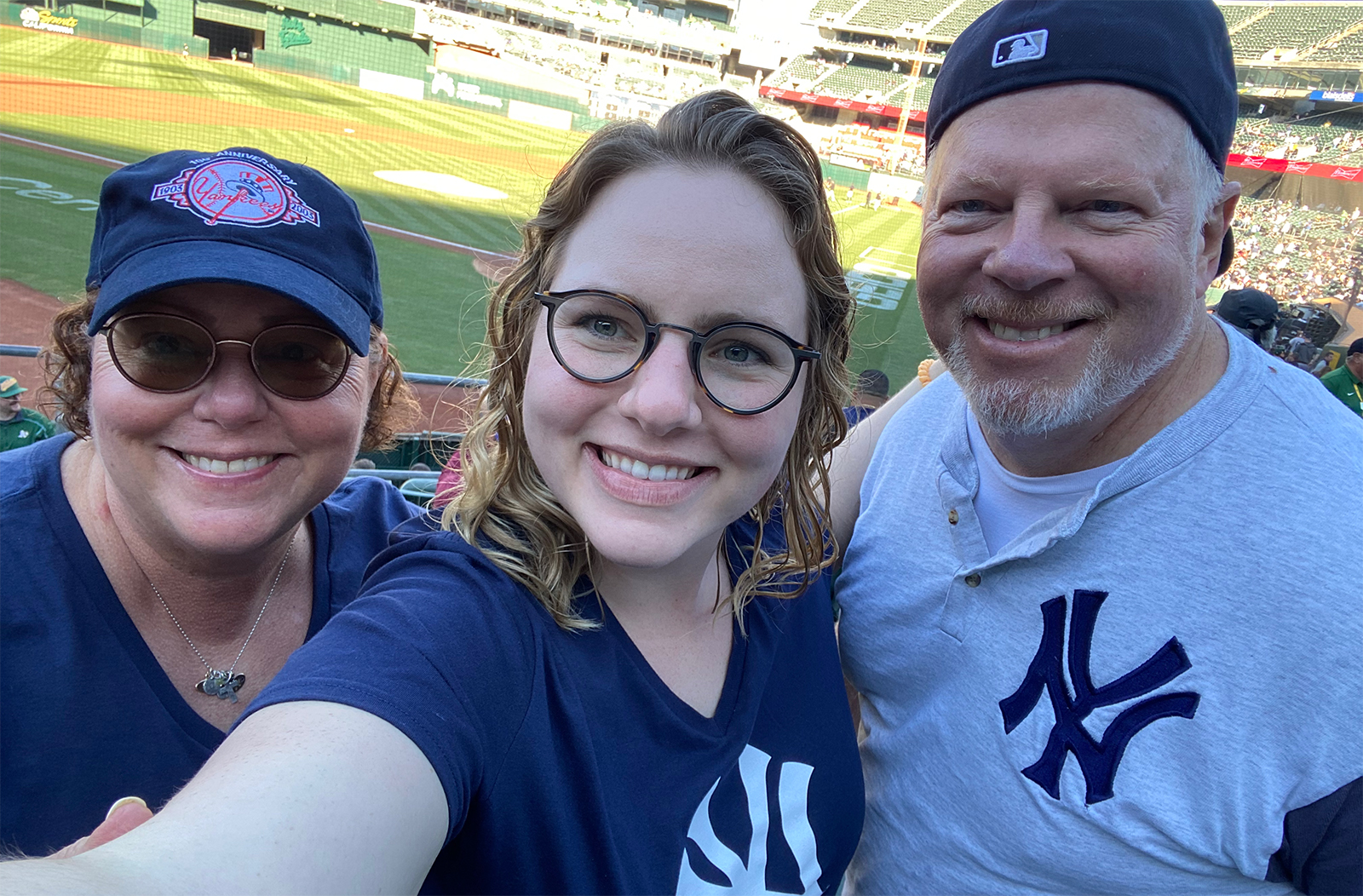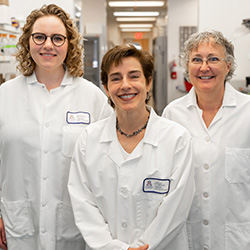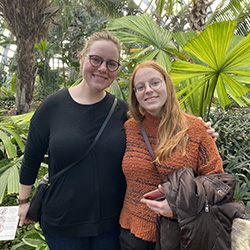
White Coat Profile: Annika Ozols

The White Coat Ceremony marks the first time a medical student will don his or her white coat, the defining symbol of a physician. The coat bestows a great honor on each student, and with it comes a responsibility to uphold the trust of every patient they will encounter. The Class of 2027 will receive their white coats on July 14 during a ceremony that begins at 3:30 p.m. in the West Ballroom of the Phoenix Convention Center downtown.
Meet Annika Ozols
Annika Ozols is an Arizona native, but her father is from Latvia. She has always felt quite connected to that part of her heritage, as well.
Ozols attended the Arizona State University Downtown Phoenix campus for her bachelor's degree. She then finished her master's degree in Clinical Translational Sciences (CTS) at the University of Arizona College of Medicine – Phoenix.
Her parents, younger sister, grandmother, close friends and mentor — Amelia Gallitano, MD, PhD, a tenured professor with the college — have provided invaluable support to Ozols as she pursued an MD/PhD dual-degree program. She plans to be a physician-scientist.
Path toward Medicine
What was the spark that led you to become a physician?
When I was 11 years old, we tragically lost my grandfather. I will never forget that day — not only for the sudden loss, but it also marked the beginning of my journey toward medicine as a career.

I remember my parents would cook dinner every night, but they would not eat. It was an unspeakable tragedy that immobilized normalcy in our house for many, many months.
The sudden loss of my grandfather may have been the spark that set me on the path toward medicine, but it was another loved one’s four-year medical odyssey that thrust me into the world of hospitals, doctors, nurses and learning the limits of medicine. Watching them battle through countless hospitalizations, tests and ambulance rides made my interest in biologic science and medicine grow exponentially.
Did you do any volunteering in health fields prior to medical school?
My emergency department volunteer work at Banner – University Medical Center taught me that small gestures — like bringing a blanket or a drink to a patient — make patients feel cared for. This can have a huge impact on their experience.
I coordinated a neighborhood service where I helped elderly neighbors navigate the COVID-19 vaccination process. I scheduled appointments and helped patients navigate location requirements, transportation and follow-up wellness checks. The digital scheduling process was difficult for most people to manage, but it was a particular challenge for the elderly. This experience highlighted another barrier that vulnerable populations face when trying to access health care. It also allowed me to play a small role in promoting community health.
I completed a clinical internship with an interventional cardiologist, as well. Rotating in clinics and hospitals, I was able to observe procedures such as cardiac catheterizations and transesophageal echocardiograms. My mentor, Mehul Shah, MD, FACC, involved me in discussions about disease pathology, treatment plans for patients and medication management.
Throughout my internship, engaging with patients and observing doctors heightened my appreciation for the evidence-based, medical decision-making process itself and the central role of compassion in delivering care. I watched in awe as a patient’s skin turned pink after Dr. Shah performed a procedure that increased blood flow to her heart. I remain inspired by physicians’ ability to drastically improve patients’ quality of life.
In addition to these experiences, I started at the U of A College of Medicine – Phoenix as an undergraduate research volunteer in Dr. Gallitano's lab in March 2018, when I was a sophomore in college. Dr. Gallitano is an MD/PhD herself, so I would say being in her lab was what prompted me to seriously consider pursing that dual degree, as opposed to a traditional MD program.
The more time I spent in the lab, the more I realized that advances in research make it possible to address treatment gaps in complex and poorly understood conditions. Working in Dr. Gallitano’s lab opened my eyes to a whole new world, one that I did not know existed.
The College of Medicine – Phoenix
Why did you choose the College of Medicine – Phoenix?

What excites you most about beginning medical school?
I am excited to start the journey toward helping patients from both a clinical and basic science perspective.
Given my family experience with complex health conditions, I can envision myself as a translational psychiatrist. I hope to unravel the complex molecular pathways of neuropsychiatric conditions and play a role in discovering and implementing targeted solutions for patients.
I also hope to advance understanding of mental illness to overcome the pervasive social and cultural stigma. Through medical education, I want to demonstrate that mental disease does not discriminate; it can impact all lives. I hope my grandfather would be proud to see me dedicate my life to finding and delivering mental health solutions that positively impact patients.
Significance of the White Coat
What does the white coat mean to you?
It is the beginning of the long journey to become a physician that advocates for patients and has the opportunity as a physician-scientist to translate science to clinical innovations that will shorten, reduce or eliminate patient suffering sooner, rather than later.
About the College
Founded in 2007, the University of Arizona College of Medicine – Phoenix inspires and trains exemplary physicians, scientists and leaders to advance its core missions in education, research, clinical care and service to communities across Arizona. The college’s strength lies in our collaborations and partnerships with clinical affiliates, community organizations and industry sponsors. With our primary affiliate, Banner Health, we are recognized as the premier academic medical center in Phoenix. As an anchor institution of the Phoenix Bioscience Core, the college is home to signature research programs in neurosciences, cardiopulmonary diseases, immunology, informatics and metabolism. These focus areas uniquely position us to drive biomedical research and bolster economic development in the region.
As an urban institution with strong roots in rural and tribal health, the college has graduated more than 1,000 physicians and matriculates 130 students each year. Greater than 60% of matriculating students are from Arizona and many continue training at our GME sponsored residency programs, ultimately pursuing local academic and community-based opportunities. While our traditional four-year program continues to thrive, we will launch our recently approved accelerated three-year medical student curriculum with exclusive focus on primary care. This program is designed to further enhance workforce retention needs across Arizona.
The college has embarked on our strategic plan for 2025 to 2030. Learn more.